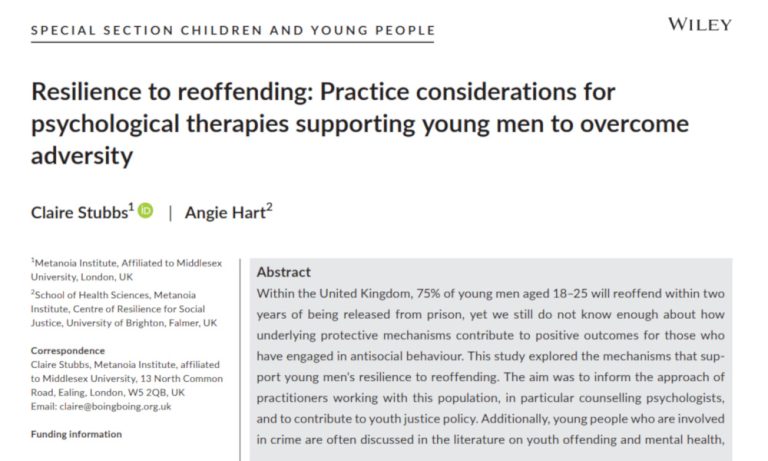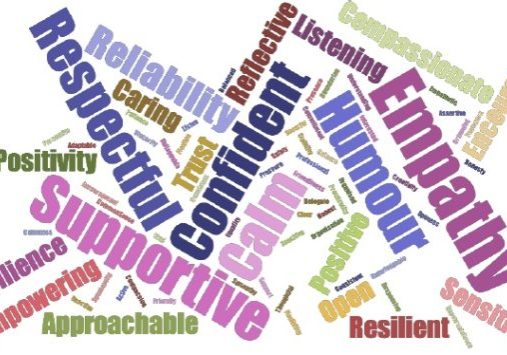Within the United Kingdom, 75% of young men aged 18–25 will reoffend within two years of being released from prison, yet we still do not know enough about how underlying protective mechanisms contribute to positive outcomes for those who have engaged in antisocial behaviour. This study explored the mechanisms that support young men’s resilience to reoffending.
Resilience to reoffending: Practice considerations for psychological therapies supporting young men

Related Resources

Can resilience be measured?
Can resilience be measured? Finding adequate and good ways of measuring is important because we would like to track the effectiveness of resilient building approaches in daily practice, to make sure that people benefit from our interventions, check the quality of our work and continue developing our interventions.

Can kinship carers benefit from learning about resilience?
This is a Collaborative Action Research project using Photo-elicitation to represent kinship carers experiences of trying to use Resilient Therapy and individual interviews with children to find out what helps them through difficult times.

Resilience to re-offending: young men overcoming adversity
This practitioner research combines support work with young people who have experienced challenging times and the Resilience Framework. By examining the mechanisms that promoted resilience amongst young men who were offending, the study took the Resilience Framework and applied it to the data collected on the young men’s experiences.